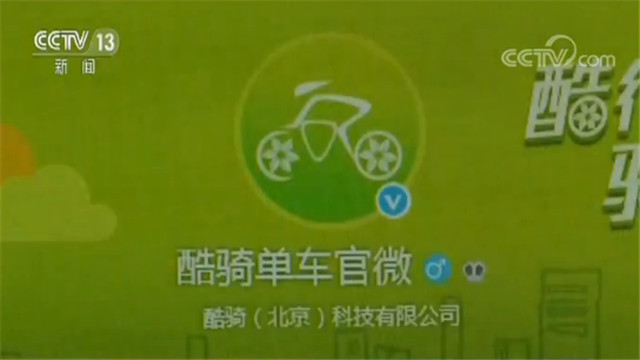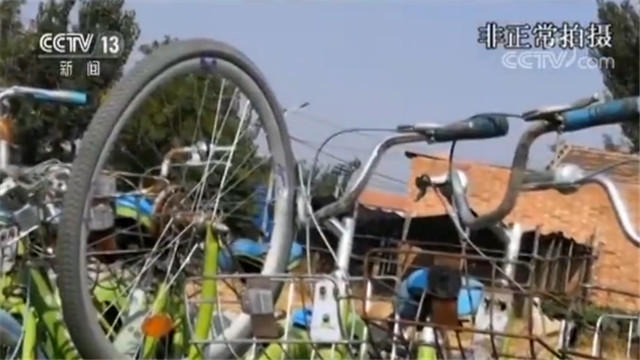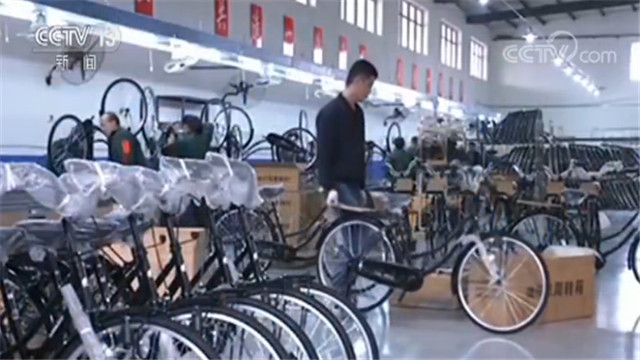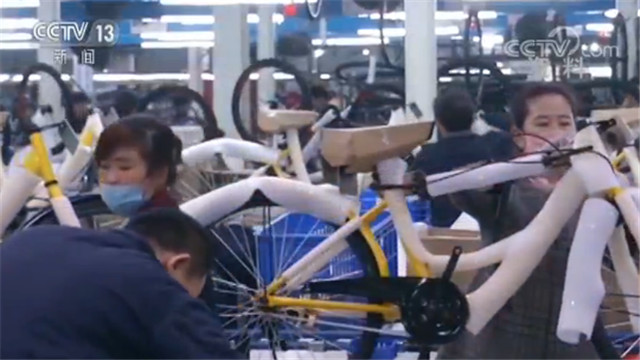Free deposit in bike-sharing will become the general trend? Bicycle companies "ride a roller coaster" is a bit square.
CCTV News:Since 2014, with the development of mobile Internet, colorful bike-sharing began to appear in the streets of the city. At their peak, there seemed to be too many bike-sharing of major brands, and many cities were besieged by bicycles. But recently, in Beijing, many commuters who often use cars found that bike-sharing was not so easy to find.

Recently, the reporter interviewed many places in Beijing and found that the number of bike-sharing on the road surface was significantly reduced than before. Take Beijing Caishikou subway station area as an example, the number of mobike put here every day has dropped from nearly 300 at the peak to more than 100 at present.
Bicycle delivery personnel told reporters that through the company’s internal bicycle delivery system, the real-time number of each delivery point can be clearly known and deployed in a planned way as needed. At each bicycle drop-off point, there are also special personnel to maintain the condition of the car.
In September 2017, the Beijing Municipal Transportation Commission issued a notice to implement the total amount control policy for shared bicycles. At present, there are 9 shared bicycle operating companies in Beijing, and the total number of operating vehicles has been controlled at around 1.91 million, down nearly 20% from the peak. It is understood that the number of bike-sharing in many parts of the country is decreasing. At the beginning of this year, Xiamen besieged bike-sharing with 300,000 bicycles, and 100,000 bicycles were idle, which caused a heated discussion. Therefore, Xiamen cracked down on bike-sharing, and the number of bicycles will be reduced by two-thirds. This year, bike-sharing will be reduced by a quarter, and the number of bicycles will be controlled to about 500,000. This month, Kunming reported the assessment of bike-sharing’s operation and management, and ofo sharing bicycles was at the bottom of the assessment for two consecutive months, and 10,000 bicycles will be recycled. In addition, the total amount of bike-sharing in Guangzhou and Shenzhen also showed a downward trend.
It is difficult for users with frequent chaos in bike-sharing to find trust
As a symbol of shared economy, bike-sharing has developed from a rush to disorderly development, to the total control that followed everywhere, and the problems in the development of bike-sharing cannot be avoided. For example, some people remove the seat, chain, tires, etc. of a bicycle, some people open the bicycle and find that it is a broken car, and some bicycles are left unattended in all kinds of unexpected places … …

Mr. Yang, a citizen, told the reporter that last year he and his two family members each used cool bicycles to travel and paid a total deposit of nearly 1,000 yuan. However, he has not received the deposit for nearly a year since he applied for a refund. Mr. Yang still keeps the cool cycling APP in his mobile phone. He said that he would open it from time to time and look at it, hoping to receive the good news of a refund one day. But in fact, this APP is already in a state of no networking.
It is difficult for car companies to return to the "brand line"
Crazy financing — — Building a car — — Release — — Refinancing — — Remanufactured cars — — Re-launch led to a serious surplus in bike-sharing, coupled with high cost and lagging maintenance, which led to a surprising number of bicycles becoming criticized urban garbage, and bike-sharing enterprises were finally unsustainable.
In Zhaojialiu Village, Bazhou, Hebei Province, there are large areas of bike-sharing piled up in the fields on both sides of the village road, with a number of nearly 3,000 to 4,000. These bicycles are of different quality, and some of them look new. The manager in charge of buying and selling told reporters that these cars are all in bike-sharing, where the local bicycle factory has a backlog of inventory.

Facing the ever-expanding demand in bike-sharing, bicycle companies have also experienced the process from excitement to disappointment. A bicycle industry insider told reporters that when bike-sharing was booming, bicycle manufacturers all over the country rushed to join in the fun. Taking Tianjin as an example, bicycle companies such as Fujita and Flying Pigeon accepted a large number of production orders from bike-sharing.
Fujita and Feige are large-scale bicycle manufacturers in Tianjin, and were once the main manufacturers in bike-sharing. The reporter wants to know about the manufacturing situation of these enterprises in bike-sharing, but he has never been able to contact the relevant person in charge.
Bicycle industry insiders: "Now Tianjin has stopped, because they don’t place orders now, and now they are all integrating. Anyway, the injured ones will digest themselves. No way, he made some money in the early stage. bike-sharing has nothing to do, and it will have to close down after a long time. "
Zhu Wei, deputy director of the Communication Law Research Center of China University of Political Science and Law, said: "There are many reasons why bicycle companies are having a hard time. One of the main reasons is that they can’t become incremental. Since the increment has not been expanded and compressed, it may not be able to keep up with capital investment. "
Wangqingtuo Town, wuqing district, Tianjin is the largest bicycle production base in northern China. The data shows that in 2015, the total output of bicycles in this town reached 12 million, and 2.6 million bicycles were exported, accounting for more than 10% of the total annual output of bicycles in the country. The person in charge of the industry said that being a bike-sharing is risky and not profitable. At present, many small production enterprises have transformed to produce export-oriented and sports bicycles and electric vehicles.

Zhang Guisheng, director of Tianjin Wangqingtuo Bicycle Management Center, said: "For Wang Qingtuo, there should not be too many enterprises in bike-sharing in the future. Now it is to encourage enterprises to go out, explore the international market, take their own brand route, and transform into high-end bicycle products."
[The first bankruptcy case in bike-sharing in China] bike-sharing recovery price: each 12 yuan.
Xiaoming Bicycle has accumulated more than 4 million registered users and received a deposit of more than 800 million yuan. It completed two rounds of financing in one year. However, in just two years, Xiaoming Bicycle declared bankruptcy, which was the first bankruptcy case in bike-sharing.
The debt is as high as more than 50 million yuan, including the deposit of 110 thousand users; The company’s assets are only 350,000 yuan in cash and bicycles scattered around. Recently, relevant announcements revealed that China Renewable Resources Development Co., Ltd. agreed to recycle Xiaoming bicycles according to each 12 yuan.
After vigorous market expansion, the bike-sharing market has entered the "second half" of development since 2017. Now, many bike-sharing enterprises have closed down and shut down, and bike-sharing has changed from explosive growth to industry reshuffle.

How should the bike-sharing platform operate next? The reporter specially contacted the customer service in mobike and the media personnel in OFO sharing bicycles, but unfortunately, as of press time, there was no response from the two companies.
How should we standardize the future development of bike-sharing and make the sharing economy really convenient for everyone’s travel?
Zhu Wei, deputy director of the Communication Law Research Center of China University of Political Science and Law, said: "The next step of development is more about orderly competition, improving the protection of consumers’ rights and interests, and more about improving the user experience. The requirement for enterprises is not only that you build a car, but also the first step. You have to maintain the normal urban travel order, and you have to adjust the flow and direction of this vehicle. I think this series of problems is an important aspect of the bike-sharing platform’s main responsibility. "
In August 2017, the Ministry of Transport and other 10 departments issued the "Guiding Opinions on Encouraging and Regulating the Development of Internet Rental Bicycles", requiring strict distinction between enterprises’ own funds and users’ deposit prepaid funds, and earmarking them. At the same time, the New Deal also clarified the standardization of parking spots and the promotion of electronic fences, and proposed that the bike-sharing platform should improve its online and offline service capabilities.
Zhu Wei, deputy director of the Communication Law Research Center of China University of Political Science and Law, said: "The increase in the actual cost of vehicle damage is not only the result of competition, but also the damage caused by users’ poor use. Through the punishment of some untrustworthy behaviors, the quality of users will continue to improve, so your operating costs may be reduced in the future. "
At present, OFO, mobike and other cities in China have started the credit deposit-free service. Experts said that the "Electronic Commerce Law" to be implemented in January next year clearly regulates the refund of deposits and strengthens the protection of consumers. We look forward to further clarification of the law, such as how to control the risks of deposits and how to implement special third-party supervision accounts.
Zhu Wei, deputy director of the Communication Law Research Center of China University of Political Science and Law, said: "If you have to collect a deposit, you must supervise the flow of the deposit and the deposit. This dynamic supervision should be done well. At the same time, we must try to avoid the collection of such deposits, because now this kind of credit supervision can be completely achieved through big data and credit. "
Experts believe that bike-sharing is a transportation service that occupies urban public resources and needs to be shared and governed by many parties. It is necessary to strengthen the timely recycling and reuse of bike-sharing to avoid resource waste and environmental pollution; City managers should take the initiative to intervene in management and services, enterprises should establish a sustainable profit model by optimizing services, and consumers should raise their awareness of public morality and not leave it lying around.